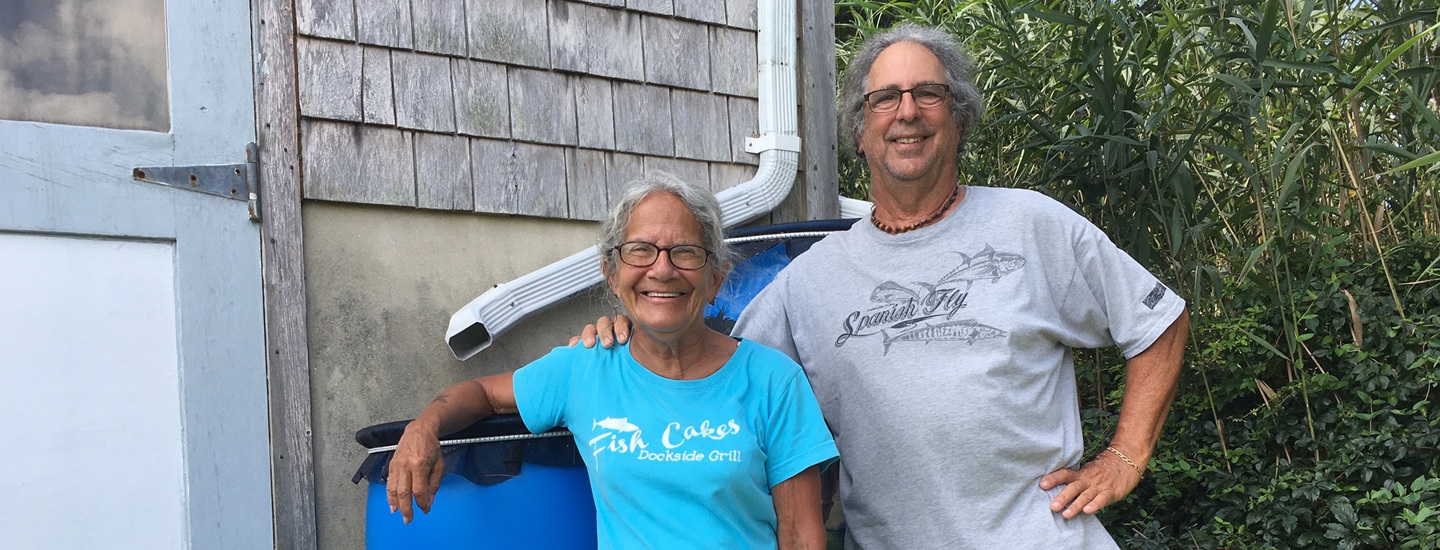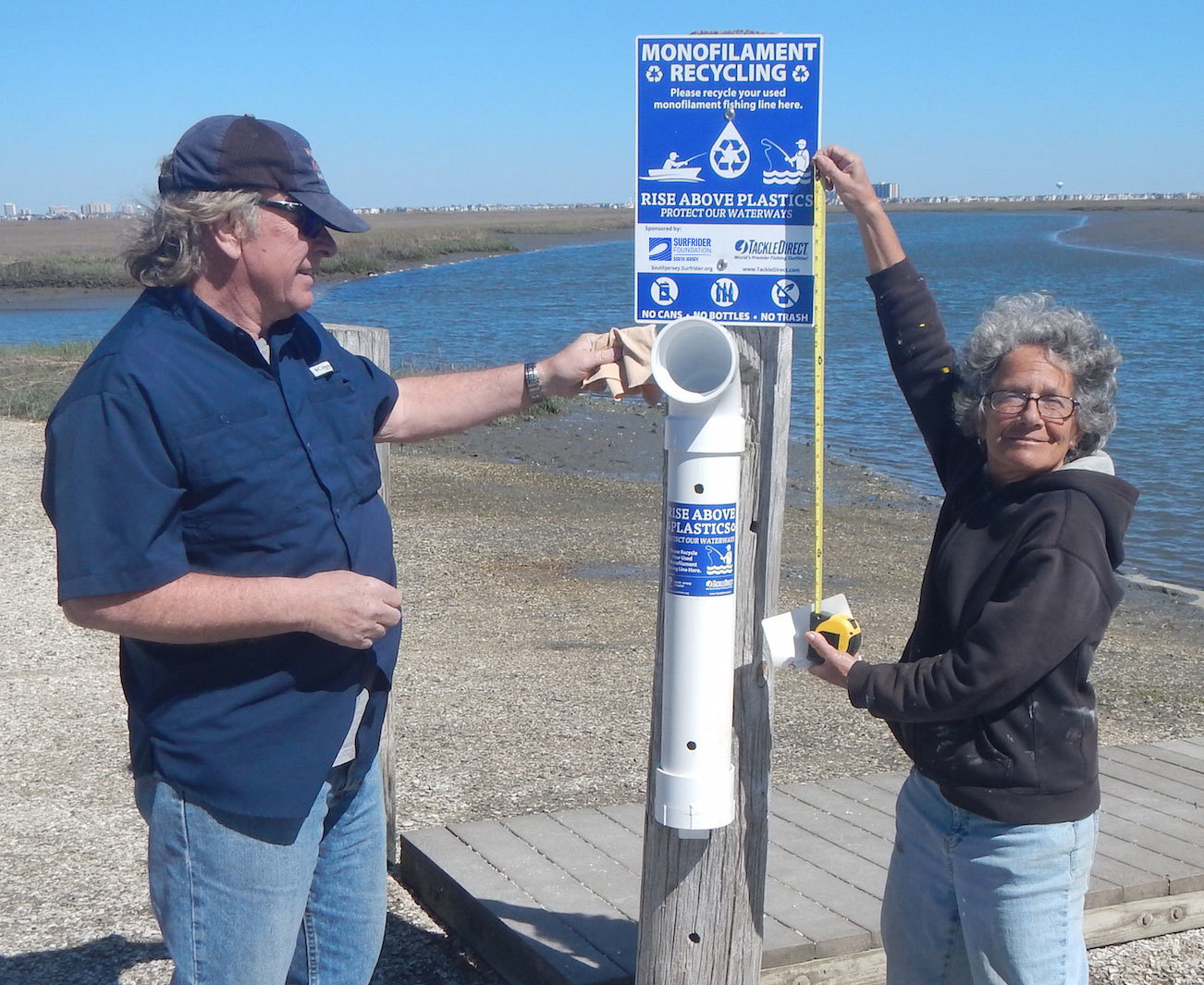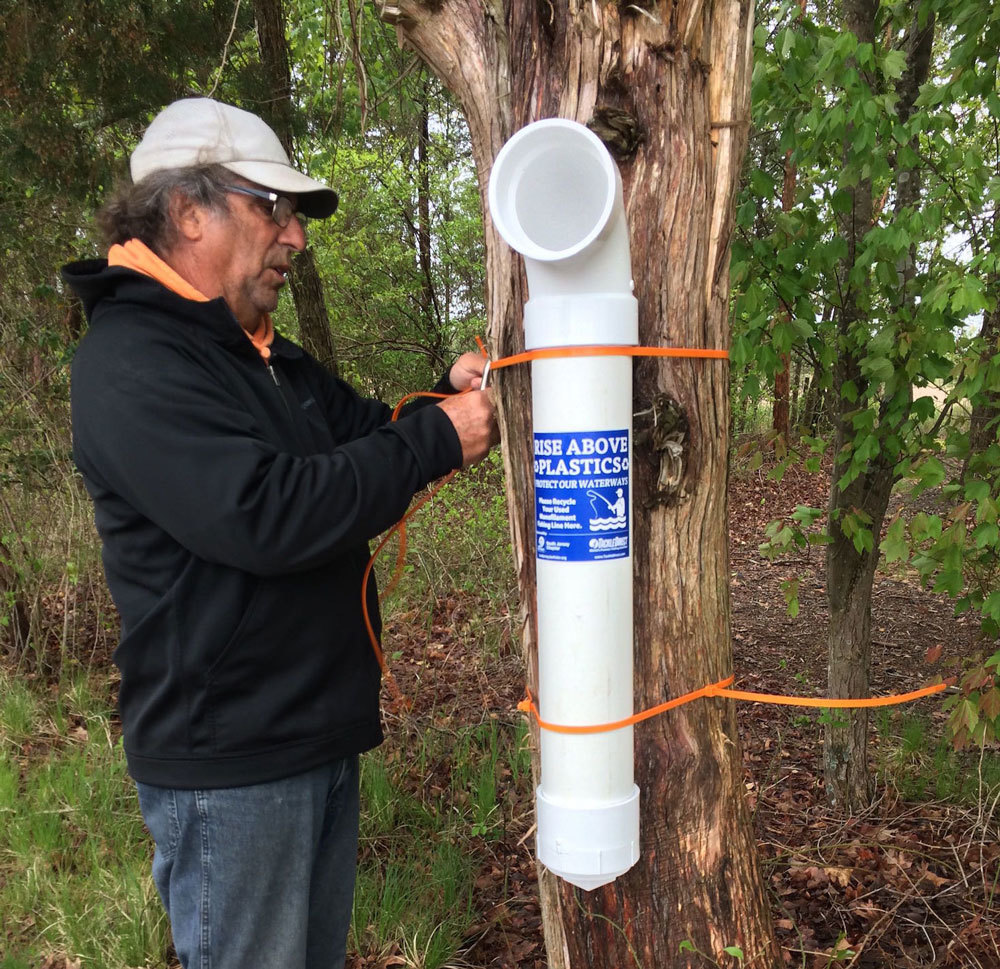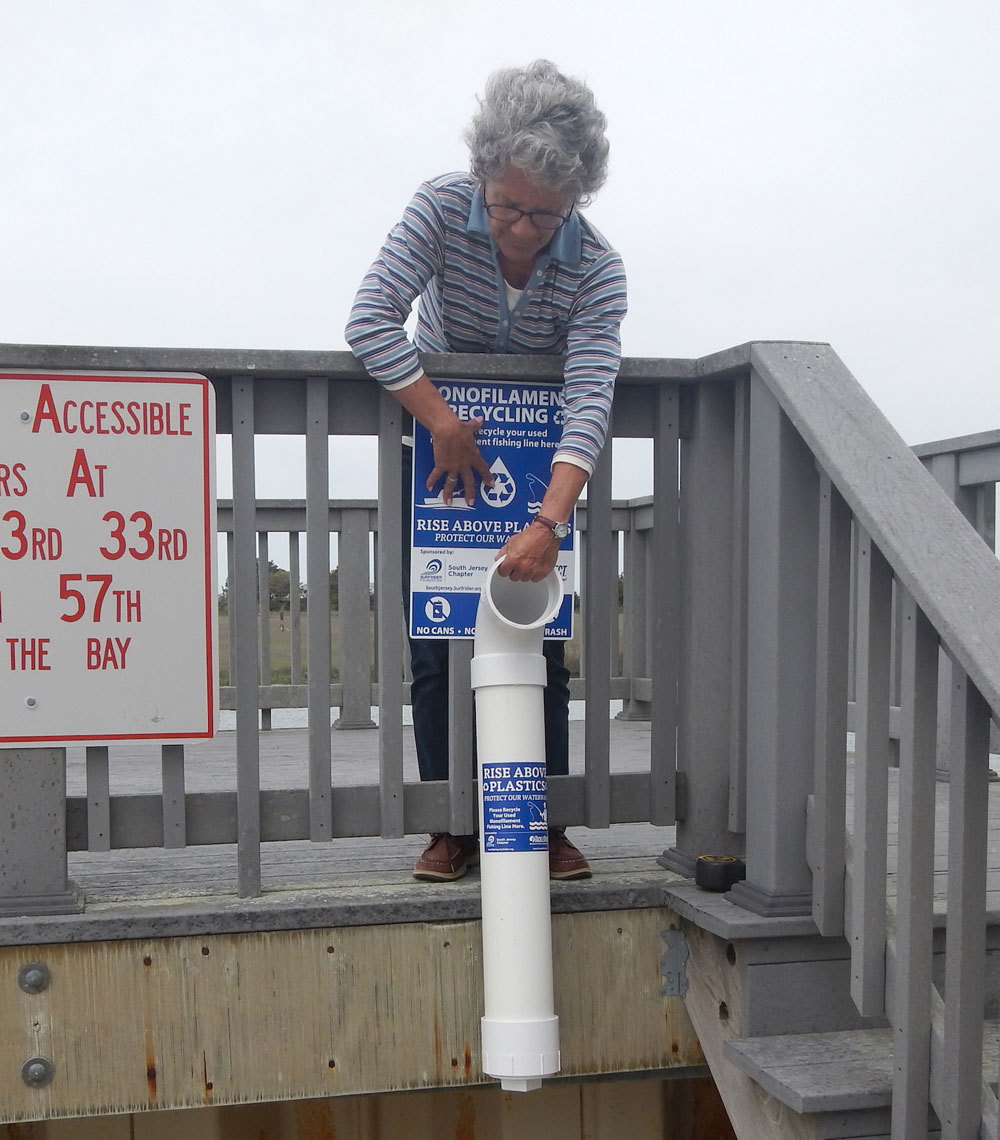
08.27.20
Activist's Spotlight: Carol Jones and Bill Stuempfig with the South New Jersey Chapter
By Ty SmithQ: Why and when did you get involved with the Surfrider Foundation?
(Bill) I was introduced to the ocean before I could walk. My desire to learn about its creatures, what made waves, and why I got so many earaches is still strong today. From teaching sailing and leading nature kayak tours, to deep sea fishing, these endeavors have dominated my life. As well as surfing and sailing in exotic places, or at home, often in water polluted from runoff. I’ve realized through these experiences that it’s all one ocean, one planet, with no real boundaries between states or countries. Living on a barrier island, overused by summer tourists and environmentally ignored by its government, led me to take action. At this time, I was appointed to a powerless environmental commission. I fought for a ban on rainforest wood to redeck the boardwalk – and we won! This led me to join Surfrider 20 years ago and become a core volunteer, so I could have a more direct impact and join like-minded people in caring about and protecting our ocean. I now understand my earaches and their connection to sewage in our environment. Our area’s waters are cleaner now, but there is still much work to be done.
(Carol) When we met, Bill had been a Surfrider member for 10+ years. Although I’m not a surfer, I was immediately attracted to Surfrider’s commitment to protecting the ocean. For many years, I had made transatlantic trips in small, multihull sailboats; the creatures of the sea fascinated me. On one crossing, 1000 miles from New Jersey or the Azores, I witnessed a sea turtle swallowing a still-inflated balloon which must have looked a lot like a Portuguese Man o’ War to him. Although I didn’t know exactly how the balloon would kill him, it was clear to me that this was a preventable death. On my return home, I became interested in environmental activism to protect the sea and its inhabitants.

Q: What are some local issues that are affecting your ocean, waves and beaches?
(Carol) We live along the New Jersey coast. Bill grew up on the barrier island of Ocean City, two miles across the bay from an old coal-fired power plant. We fought against a natural gas pipeline through the Pinelands Preserve intended to repower the aging plant. Due to the activism of the Surfrider Foundation and other environmentalists, the plant is now shuttered and the pipeline project is dead. We now live on the Tuckahoe River, an estuary of Great Egg Bay, behind Ocean City. There is relatively little development on the river, most of which is part of an extensive marsh. But the waters in the bay behind Ocean City are stressed by the continuing over-development of the city, causing extensive runoff from the use of herbicides, pesticides, and vehicles. Plastic pollution is a constant problem, consisting mostly of celebratory balloon releases, styrofoam takeout containers, plastic utensils, plastic bottles, straws, and cigarette butts, especially because of the increased tourist population in the summer. The constant beach replenishments adversely affect dune structure, as well as creatures in the ocean and on the adjacent land.
Q: What Surfrider projects have you worked on?
(Bill) We participate in several projects — beach cleanups, tabling at events— but our main contribution has been with the Rise Above Plastics program. After receiving permission from municipalities or commercial enterprises, we build, install, and maintain monofilament recycling bins at locations where people fish: marinas, beaches, bridges, parks, etc. We have installed over 60 bins along the New Jersey coast from Cape May to Brigantine. The bins are appreciated everywhere, especially by fishermen. We sort out the inevitable trash in the bins and send the monofilament to Berkley Fishing Line Company where it is made into other products such as tackle boxes and spools for line. We have recruited several Surfrider volunteers who help us empty the bins on a regular schedule; we use a Google app to keep track of the bins serviced.
I am the chapter coordinator for the Ocean Friendly Gardens program. Carol and I work together building, decorating, and installing rain barrels to control runoff. You can find 50 barrels at homes and businesses throughout South Jersey. They are especially beneficial on barrier islands and other coastal communities where “downstream” is never far from the ocean.
We speak at many local meetings about the need for ordinances to control single use plastic bags, balloon releases, and other topics related to the health of our ocean.

Q: What has been the highlight of your Surfrider experience (i.e., campaign, program, victory)?
(Carol) The rewards of our efforts are the highlights of our Surfrider experience. We’re proud that shoppers’ habits have changed because of bag ordinances that we fought so hard to get passed. We enjoy seeing the new owner of a rain barrel realize that the beautiful new addition in the backyard is helping to protect the ocean. Seabirds, turtles, and marine mammals are less threatened by entanglement in discarded monofilament fishing line as a result of the recycling bins. These are not things we could have accomplished on our own.

Q: What is the most important thing you tell others about Surfrider?
(Bill) Our democracy is based on special interest groups. If you want to make a difference, join a group! There IS hope!
Q: Why are you a Surfrider coastal defender (or why is being a Surfrider coastal defender important to you)?
(Carol) There’s strength in numbers, and Surfrider gives us the opportunity to meet with fellow activists to effect the changes we’d all like to see. We’re able to combine our strengths and talents to organize, build, and create, with one common purpose: defending our environment.